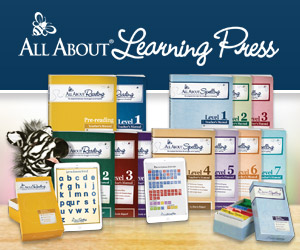Improve Vocabulary and Reading Comprehension

How to improve vocabulary and reading comprehension is vital to academic success. Comprehension is what reading is all about, so it follows that knowing the meaning of words helps understanding. In this blog I will write about the impact of vocabulary knowledge on reading and three simple strategies that will improve vocabulary in four areas.
Types of Vocabulary
There are four types of vocabulary; listening, speaking, reading and writing vocabularies. Listening vocabulary refers to the words a person knows (can understand) when they hear them in spoken English, speaking vocabulary is all the words used to express oneself, reading vocabulary is the number of different words recognized and understood in reading, while writing vocabulary is the words used to write effectively. All of the different vocabularies overlap and together provide a platform from which children see and understand the world. Reading words is nothing if the child doesn’t understand the meaning of the words. Improve vocabulary to improve all areas of knowledge.
Speaking and Listening
Parents can substantially improve vocabulary by speaking and listening to children regularly. This is not only about the normal everyday chatter but also about areas of interest and specific areas of study. Incidental talking is part of this daily ritual.
An improve vocabulary example could be a simple discussion on why it is important to protect ourselves with sun cream. One of my sons had very fair skin and red hair and was always complaining about wearing a hat and lotion. I found a leaflet on sun care and read it before he arrived home. Yes, I had to make certain that I knew the facts. There was loads of information and labelled diagrams in the leaflet. After reading, we talked about the rays of the sun, the different layers of the skin and the diagrams. We had a great time. AND better still at the end of the day there was no more complaining about wearing a hat or lotion.
This is an example of listening, speaking and reading vocabulary in an incidental way. What a great way to learn. When my son read about the sun in Science he had new vocabulary to support his comprehension and he also had new specific words to use in writing. I also heard my son playing with another boy using the new vocabulary!!.
Reading Aloud by an Adult
Secondly, adult reading aloud to children on a daily basis exposes them to a variety of words that will be added to their vocabulary repertoire. This increase will help children to gather meaning to help them understand the world we live in. Additionally, reading aloud to a child assists in the development of language skills and it improves listening comprehension and attention span. It also introduces a child to new experiences and stimulates the imagination. Furthermore, research indicates that reading aloud to children on a daily basis is a great predictor of reading success. Increase reading aloud and improve vocabulary.
Daily Reading
Thirdly, children need to read a variety of fiction and non- fiction on a daily basis. Reading each day not only improves reading accuracy and fluency but also vocabulary and comprehension. This reading provides information on how relationships work, how to complete projects and broadens horizons and knowledge in many areas. I read recently in a blog where someone wrote that reading affected every area of his life. Quite a powerful statement! Personally I am studying in a field that I know nothing about. This has challenged me enormously. New vocabulary with different meanings to what I am used to and concepts that are foreign to me. But, learning all of this will take me to the next step in what I want to do. I will be able to read about this specific domain without effort, write with ease, speak and listen to further my knowledge.I had to improve vocabulary to understand and develop a new skill. It is all great stuff!!
It follows then that reading will be understood if vocabulary is extended through the channels of speaking, listening and reading aloud. It also follows that writing will be specific in the way that it speaks to the reader if the author has a broad repertoire of words to tell, explain and discuss what is intended.
A Practical Example
In order to write and read effectively, the first step to improve vocabulary is through speaking and listening is paramount. It isn’t just a matter of saying the new words and discussing their meanings, it needs more focus. I was listening to one of my grand- daughters singing the song, ”Little Miss Muffet.” She was singing “curves and waves” instead of curds and whey. I had to correct her as you all could imagine!!! I told her the first time the correct words, BUT she repeated the incorrect words. What had I missed? By simply telling the correct words I hadn’t added anything to meaning. What I needed to do was to take some fresh milk and provide a specific experience of curd and whey. I doubt that a child would forget the meaning of these two words following this experience. Or the following reading could have helped.
.jpg)
In the cheese making process, milk is separated out into solids (curds) and liquid (whey), usually with the aid of some coagulant.
The whey looks like cloudy, yellowish water. It tastes exactly like milk, and is full of nutrients. Most cheese makers recycle the whey from their cheese making process. If the cheese maker owns pigs, for example, they may feed t the last milk solids from the liquid.
What would have impacted you more, the written words or the picture and the words, or would it be better to take the time to make curds and whey? Of course the latter would be the best because it would include every learning style.
Vocabulary development is constant BUT with experiences like that above with lots of listening, speaking, reading and viewing as well as hands on activities we will see ,not only improve academic results but create a brighter future. It is easy to spot the winners in how they speak, listen, write and read. Go create a dream!!!
Contact Ann for one on one tutoring in your home info@letterboxlearntoread.com
Ann Foster
.jpg)
Ann Foster is the Principal of letter Box.She is a teacher with a unique talent in providing step by step programs for students in Australia and overseas. Her programs and products help children, teachers and parents to achieve extraordinary results quickly.
Ann has been working online teaching students and adults successfully for the last four years and has taken children from below and average results to well above.
Letter Box staff solve problems and puts wings onto dreams.
www.letterboxlearntoread.com


